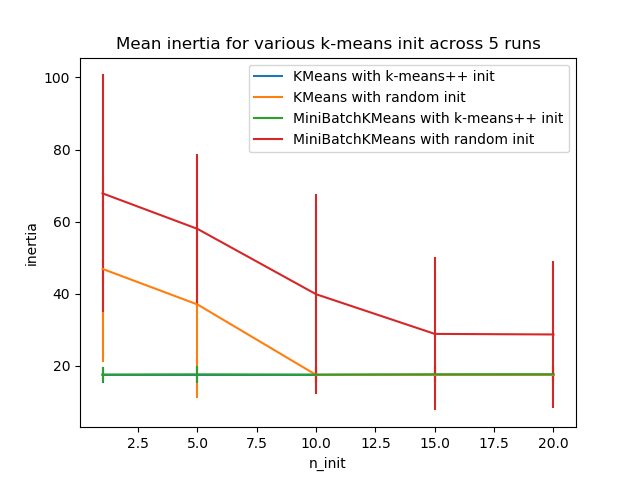sklearn.utils.shuffle¶
sklearn.utils.shuffle(*arrays, **options)
以一致的方式随机排列数组或稀疏矩阵
这是一个方便的别名,用于resample(*arrays, replace=False)对集合进行随机排列。
| 参数 | 说明 |
|---|---|
| *arrays | sequence of indexable data-structures 可索引的数据结构可以是数组、列表、数据矩阵或具有一致第一维的稀疏矩阵。 |
| 返回值 | 说明 |
|---|---|
| shuffled_arrays | sequence of indexable data-structures 集合中打乱的副本的序列。原始数组不受影响。 |
| 其他参数 | 说明 |
|---|---|
| random_state | int, RandomState instance or None, optional (default=None) 确定用于对数据进行混排的随机数生成。 在多个函数调用之间传递int以获得可重复的结果。 请参阅词汇表。 |
| n_samples | int, None by default 要生成的样本数量。如果为空,则自动将其设置为数组的第一个维度。 |
另见:
示例:
可以在同一运行中混合使用稀疏数组和密集数组:
>>> X = np.array([[1., 0.], [2., 1.], [0., 0.]])
>>> y = np.array([0, 1, 2])
>>> from scipy.sparse import coo_matrix
>>> X_sparse = coo_matrix(X)
>>> from sklearn.utils import shuffle
>>> X, X_sparse, y = shuffle(X, X_sparse, y, random_state=0)
>>> X
array([[0., 0.],
[2., 1.],
[1., 0.]])
>>> X_sparse
<3x2 sparse matrix of type '<... 'numpy.float64'>'
with 3 stored elements in Compressed Sparse Row format>
>>> X_sparse.toarray()
array([[0., 0.],
[2., 1.],
[1., 0.]])
>>> y
array([2, 1, 0])
>>> shuffle(y, n_samples=2, random_state=0)
array([0, 1])






